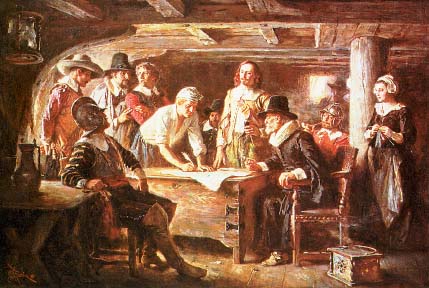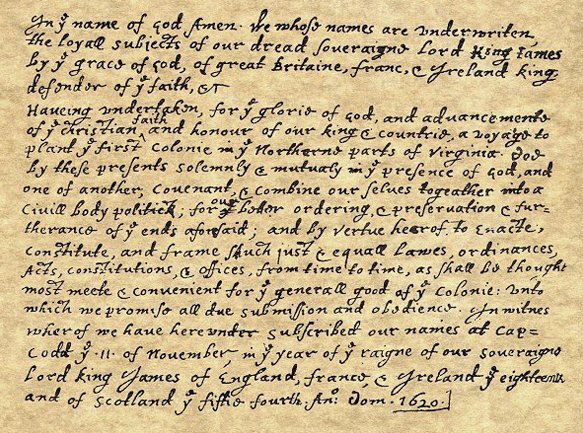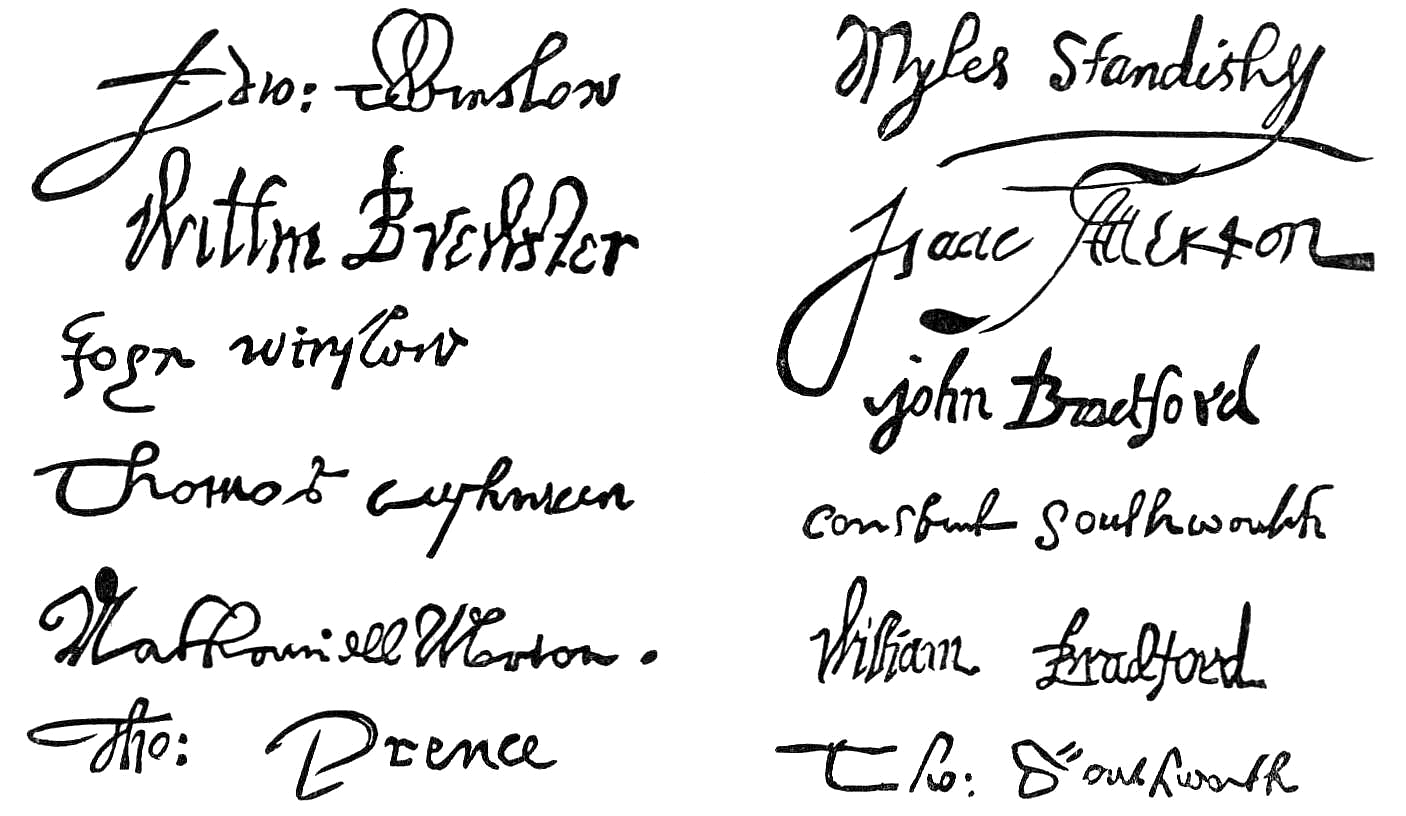Probably everyone has heard of the Mayflower Compact, but I wonder how many really know its significance? I’ll address that today as we continue our trek through American history.
As I noted in my last Pilgrim post, getting to America was a major trial in itself. The preparations put this small band deeply in debt and the voyage was memorable, to say the least. They wouldn’t soon forget the storms and the cramped living conditions. Yet, up to this point, none of their entourage had died. That would change soon.
The storms had blown them off course. The authority they had from the company to settle was in the Hudson River area of what is now New York, but they couldn’t get there. When they tried, they almost shipwrecked, so they turned around and decided to make Massachusetts their new home. The only problem with that was they had no governing authority in that place, and some on the ship who had been hired on to help them were rather happy with the lack of government once they touched land.
That’s what led them to draw up a document that would bind all of them together into a civil society.
This is not a long document—only one paragraph. Yet it was highly significant. It began with the key words, “In the name of God. Amen.” That’s always a good start.
It didn’t set up a formal type of government or lay out any rules for governmental positions or how to elect anyone, but it did establish the fact that there would be a government. It didn’t create any laws, but it did say that all the signatories would abide by any laws made. In other words, it laid the foundation for moving forward as a community. Those who signed it agreed to recognize both this document and the government that would come forth from it as legitimate.
How were they able to do this? Weren’t they mostly just simple farmers? Actually, William Brewster, their elder, had worked in the diplomatic corps at one time. And they all had practiced making covenants and governing already in their church. They merely carried over the Biblical concept of covenant from the church to civil society. There is ample reason to refer to the Mayflower Compact as the first American document of Christian self-government.
They had arrived. They had the beginnings of a government. They now needed a place to call home. That’s where we’ll pick up the story next.



